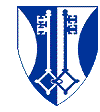
IB Easter Institute
IB Review

|
T:+44 1865 741911 |
|
|
|||||||||||||||||||||||||||||||||||||||||||||||||||||||||||||||||||||||||||||
For students taking the IB Diploma Exam in May or November 2003This is an intensive review course designed to cover work that most students should have completed in their first and second years of the IB Diploma course. Many students find it helpful to review work with a different teacher, and get a new approach to a topic. While we cannot hope to go over everything, teachers will cover the major topics of the subject syllabus and concentrate on those topics that appear frequently in exam papers. Also, due to no fault of your own, you may have missed sections of a syllabus. As the group sizes are small, you will be able to go over gaps in your knowledge with the teacher involved. Where possible, classes will be grouped by ability. In the residential college setting, you will be asked to work hard, but should find the course worthwhile and that it puts you in a good position to tackle your final IB exams. The following
courses are being offered in April 2003:
You may take a different class in each course. Each class will be suited to your needs. Class sizes will be small, so you can tell us what you would like to cover before you arrive and during the classes. If you would like your current IB teacher to write to us to let us know what he or she feels that you need, please feel free to ask them to do so. Whilst we cannot hope to go over everything, teachers will adapt the courses as much as possible to suit the needs of each group of students. Courses will include:
More information:SubjectsCourse One [12-14 April]Biology HLEaster Course
- All IB Review Courses
Exam Techniques
Please note
that this is an illustration of the sort of areas covered by one
particular class. Each course is slightly different, as the teachers
adapt what they cover to ensure that they address the particular
needs of each group of students. Chemistry SLEaster Course
- All IB Review Courses This course reviewed the work the students found most difficult on the core topics in the Chemistry Standard syllabus. Topics studied included:
Students revised the main points in the topics and attempted relevant IB Paper 2 questions. They also worked on a Paper 1 (May 1998), observed a practical and did some work on the practical criteria. Please note that this is an illustration of the sort of areas covered by one particular class. Each course is slightly different, as the teachers adapt what they cover to ensure that they address the particular needs of each group of students. History (Modern European) SLEaster Course
- All IB Review Courses Topics include:
Skills include:
Please note that this is an illustration of the sort of areas covered by one particular class. Each course is slightly different, as the teachers adapt what they cover to ensure that they address the particular needs of each group of students. English A2Easter Course
- All IB Review Courses
Please note that this is an illustration of the sort of areas covered by one particular class. Each course is slightly different, as the teachers adapt what they cover to ensure that they address the particular needs of each group of students. Maths MethodsEaster Course
- All IB Review Courses Sequences, logarithms and indices, binomial theorem, linear equations, quadratic functions, inverse functions, composite functions, transformation of graphs, trigonometry, radian measure, circular functions, vectors. Please note that this is an illustration of the sort of areas covered by one particular class. Each course is slightly different, as the teachers adapt what they cover to ensure that they address the particular needs of each group of students. Course Two [15-17 April]Chemistry HLEaster Course
- All IB Review Courses The following topics were studied:
Please note that this is an illustration of the sort of areas covered by one particular class. Each course is slightly different, as the teachers adapt what they cover to ensure that they address the particular needs of each group of students. Physics SLEaster Course
- All IB Review Courses Topics Skills Please note that this is an illustration of the sort of areas covered by one particular class. Each course is slightly different, as the teachers adapt what they cover to ensure that they address the particular needs of each group of students. History (Modern European) HLEaster Course
- All IB Review Courses Topics include:
Skills include:
Please note that this is an illustration of the sort of areas covered by one particular class. Each course is slightly different, as the teachers adapt what they cover to ensure that they address the particular needs of each group of students. English A HLEaster Course
- All IB Review Courses Contents
Skills
Please note that this is an illustration of the sort of areas covered by one particular class. Each course is slightly different, as the teachers adapt what they cover to ensure that they address the particular needs of each group of students. English BEaster Course
- All IB Review Courses
Please note that this is an illustration of the sort of areas covered by one particular class. Each course is slightly different, as the teachers adapt what they cover to ensure that they address the particular needs of each group of students. Maths StudiesEaster Course
- All IB Review Courses Rounding to significant figures, standard form, arithmetic and geometric series. Algebra: expanding brackets, factorising and solving quadratics, quadratic graphs. Straight lines: equation of a straight line, midpoint, length, 2D 3D, perpendicular lines, gradient. Trigonometry: SOH, CAH, TOA, Sin/Cos Rules, 3D Trigonometry. Graphs of Trig functions. Venn diagrams, range/domain of functions, transformations (including Trig graphs). Simple, compound interest. Logic. Vectors. Statistics, Probability Please note that this is an illustration of the sort of areas covered by one particular class. Each course is slightly different, as the teachers adapt what they cover to ensure that they address the particular needs of each group of students. Course Three [21-25 April]Biology SLEaster Course
- All IB Review Courses Topics
Exam Techniques
Please note that this is an illustration of the sort of areas covered by one particular class. Each course is slightly different, as the teachers adapt what they cover to ensure that they address the particular needs of each group of students. Physics HLEaster Course
- All IB Review Courses Topics Skills Please note that this is an illustration of the sort of areas covered by one particular class. Each course is slightly different, as the teachers adapt what they cover to ensure that they address the particular needs of each group of students. Economics HLEaster Course
- All IB Review Courses Topics
A supplementary session covered themes in macro-economics, looking briefly at aggregate supply and demand, and systems employed by economists in reading the national economy and formulating policies: Classical, Keynesian, and Monetary. Skills
Developing techniques for answering the various categories of IB examination questions. Please note that this is an illustration of the sort of areas covered by one particular class. Each course is slightly different, as the teachers adapt what they cover to ensure that they address the particular needs of each group of students. English A SLEaster Course
- All IB Review Courses Contents
Skills
Please note that this is an illustration of the sort of areas covered by one particular class. Each course is slightly different, as the teachers adapt what they cover to ensure that they address the particular needs of each group of students. English BEaster Course
- All IB Review Courses
Please note that this is an illustration of the sort of areas covered by one particular class. Each course is slightly different, as the teachers adapt what they cover to ensure that they address the particular needs of each group of students. Maths HLEaster Course
- All IB Review Courses Students covered the following topics:
Please note that this is an illustration of the sort of areas covered by one particular class. Each course is slightly different, as the teachers adapt what they cover to ensure that they address the particular needs of each group of students. IB Review Programme Details || IB Study Weekend |
|||||||||||||||||||||||||||||||||||||||||||||||||||||||||||||||||||||||||||||